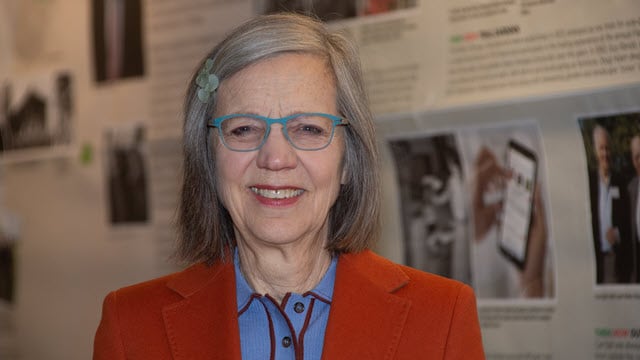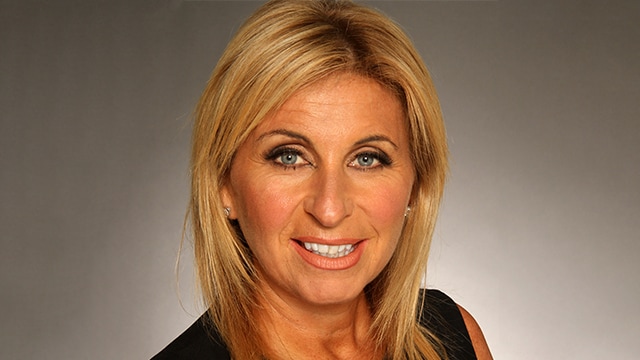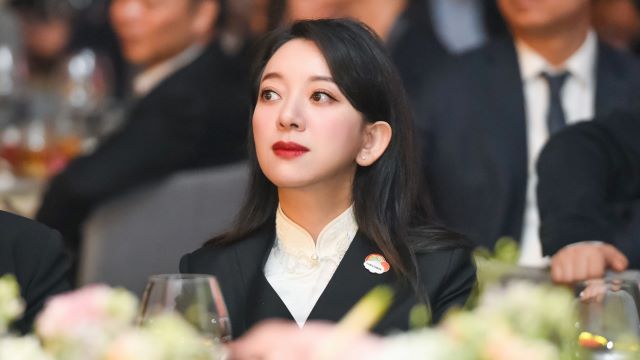Mujeres liderando empresas familiares Ha sido salvado


What future leaders can learn from today’s women leaders of family enterprises
On this International Women’s Day, we’re recognizing powerful women leaders who have broken down barriers and challenged the status quo to help create a more equitable world.
To begin, we sat down with Amy Hart Clyne and Dennis Jaffe, authors of Finding Her Voice and Creating a Legacy, to discuss the ways in which women leaders of family enterprises are rewriting the script and redefining success—for themselves as well as future generations of leaders.
Q: Your book is a collection of intimate conversations with women leaders of family enterprises. Why did you choose to focus on this group?
Amy Hart Clyne: I’ve worked with women of wealth for many years. And one of the things that I observed is that, on the one hand, these women are very curious and interested and engaged, but on the other hand, they’re reticent to contribute, to share ideas and thoughts and concerns. In short, I heard their silence. And that bothered me, because I’ve seen how instrumental the matriarch can be not only in keeping the business going, but also in creating and preserving a sustainable, multi-generational legacy.
Dennis Jaffe: I also felt there was a dearth of research about women leaders in this space. There’s plenty of data about passive women who are not stepping up to leadership. But what about the women who are? What are they doing differently? I was excited to learn more about that.
Q: For a long time, women were expected to fall in line with the models created by their male predecessors. But as these women stepped into larger leadership roles, did they find themselves challenging those models, whether directly or indirectly?
Amy: What we found was that a lot of these women eschewed the power structure that often exists. They weren’t looking for power over people. They effected change and managed situations through influence rather than domination. They weren’t trying to just get people to acquiesce, it was much more about trying to work alongside people.
Dennis: And I think that’s something we’re starting to see from modern leaders in general. We’re moving away from the model of domineering patriarchs or bosses. There’s much more emphasis on collaboration.
Q: Challenging the status quo generally creates a lot of friction. What kinds of barriers did these women encounter as they endeavored to do things their own way?
Amy: Many feel they had to jump higher hurdles than their male counterparts. They had to deal with acrimony and with being underestimated. There was this sense that, because they were women, the family should have different, sometimes lower, expectations. And there was some resentment in that, as you can imagine.
So these women had to fight harder to prove themselves. They had to be resourceful. And to do that, they had to have an inner confidence, because it can be really difficult to break down some of those older stereotypes.
Dennis: These women are not passive people. They had to stand up for themselves. They had to speak up when they felt that something wasn’t right. They’re assertive. And that challenges the old power dynamics where only men were allowed to be assertive.
Q: For all the challenges they faced, these women ultimately succeeded. Is there something unique about family enterprises that makes them more conducive to a new leadership model?
Dennis: I think a lot of family enterprises are on the cutting edge in terms of their approach to management, collaboration, things like that, because their businesses are often built on a foundation of shared purpose and social commitment. And so it doesn’t matter if you’re a son or a daughter, it matters about upholding those values.
Q: You mentioned that these women have been instrumental in creating a legacy for their families. What does that legacy look like to them?
Amy: A lot of the women we spoke with didn’t like the word “legacy” because it puts the focus on them, and they feel like it’s not about them. It’s about sharing their stories so the next generation can benefit. It’s about ensuring that some of the challenges they faced aren’t a problem for their kids. And it’s not just about breaking down barriers for their daughters, because the patriarchal system of dominance isn’t great for anyone.
Dennis: Exactly. None of them said, “I’m doing this for my daughters.” They said, “I’m doing this for my kids.” Because the way they see it, everybody in the family has an equal chance—everybody can go into the business. Whereas in a lot of earlier generations, there was a clear policy that only men could enter the business.
Q: Why do you think it’s important to tell these women’s stories?
Amy: Because we know that when women succeed, everyone succeeds. So this is really the start of a larger conversation about how we share these lessons with future generations. So many of the women we spoke with said to us, “I’m sharing my thoughts and my experiences and the things I learned, not for me, but so that you can go do something with it.” And I hope that by celebrating these women, we can inspire the next generation of leaders. I want this to be the start of the conversation, not the end.
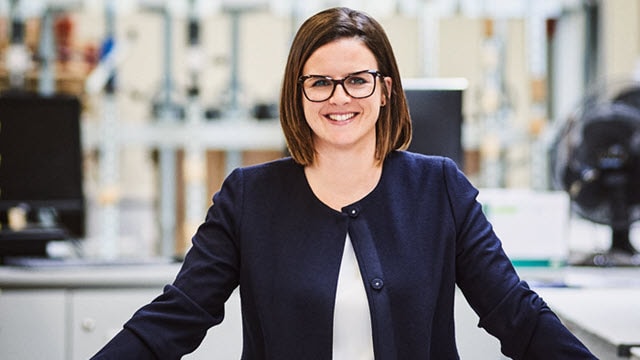

How F/LIST’s List-Nagl learned the ropes and took her family’s business to new heights
Katharina List-Nagl is CEO of F/LIST, a family-owned firm founded by her grandfather in 1950. The Austrian company designs, builds, and outfits the interiors of airplanes, yachts, and residential projects. Since List-Nagl joined the company in 2004, the company’s revenue has grown more than tenfold. Today, F/LIST employs more than 900 staff from more than 30 countries, and eight subsidiaries operating in Europe, Middle East and North and South America. It was recently recognized by Deloitte as one of Austria’s inaugural Best Managed Companies. We sat down with List-Nagl to talk about her expansive hands-on training in the business, the influence of her father on her leadership style, and what sets her apart as a third-generation female leader.
Q: How did you get your start at F/LIST?
I didn’t join the company until 2004 but you could say it was an integral part of my upbringing. As long as I can remember, it was the topic of conversation around the breakfast table, every day. When I was a child, my father would take me with him on buying trips and to visit construction sites and shipyards. I always had to write a summary of what I saw and what I experienced. After my studies, I went to Spain to start my career in marketing and I did not plan to come back so early, but the company at the time was in a crisis situation. My father asked me to come home and support him with marketing and sales material, because we needed projects and we needed work. So I formally joined the company in 2004.
Q: What roles were you involved with before becoming CEO? How did you position yourself to succeed your father?
I rotated jobs throughout the entire company. I started in marketing and then moved over to HR because our aviation business was just starting up and we needed to hire people and onboard them. I did pretty much everything at some point. I checked invoices. I did budgeting and controlling. I joined the executive board in 2009. I didn’t have the role of CEO at that point, and as I experienced later, it is a huge difference being part of the team versus actually being in charge.
Q: So how did you prepare for that? And balance the needs of your growing family at the same time?
When I gave birth to two daughters, in 2011 and 2013, I had to figure out for myself whether I really wanted to take over, and how I could manage that with two little girls at home. I wanted to help secure the future of the company. During that time, I started working with an external leadership coach. It was very, very important for me from the beginning not to be seen as the daughter. I wanted to deserve the role of CEO and be accepted by the team. I think my broad experience within the company helped a great deal with that, but the leadership coaching was also important. My father was right alongside me, as part of a takeover process. We both worked very hard on ourselves. It couldn’t have gone any better, to be honest.
Q: What leadership traits do you think you inherited from your father? How does your leadership style differ from his?
There are several traits that we have absolutely have in common. For one, we don’t compromise on our values. We both have a huge appreciation for what is done on the shop floor and regularly interact with our employees there. And we both also follow our gut feeling as leaders. We also have huge differences in our leadership styles because he was the pioneer. He started out as a carpenter craftsman, and I would never dare to compare myself to him in terms of experience because I’m still learning every day. But now that the company has grown as much as it has, it takes different skills to meet its demands.
Q: Did you ever feel like you were operating in his shadow or like you had to work harder to be taken seriously in your role?
My big advantage going in was that I was his daughter, so I have never been compared to him as a son would. I have the freedom to make my own way because of that. But I still continue to benefit from his leadership, as he remains on our supervisory board. We are very honest with each other and appreciate each other quite a lot. There is no ego in the room when we work together, which I think tends to get in between fathers and sons.
Q: It sounds like it was pretty smooth sailing in the leadership transition from father to daughter. Did you have to overcome any obstacles as a woman in your industry?
The industries we serve are very male dominated, so it’s harder for a woman to be taken seriously. But I think we benefited from the beginning because we had such strong, trusting relationships with our business partners. If there was something I didn’t know, I would take my craftsmen with me. We always employ a team approach, and it’s a team that has worked together for many, many years. Also, my father doesn’t speak English and about 75 percent of our customers do, especially in aviation. So I was an active participant in those conversations very early. I went from serving the coffee to conducting the meetings. So it was no big deal when I actually took over.
Q: Given your experience, do you think we’re seeing progress in terms of breaking down gender biases and bringing more women leader perspectives into the limelight?
I don’t think we’ve made enough progress. It still feels like some women just get leadership roles for compliance reasons and many more are deserving. I don’t see myself as a feminist or anything like that, but I think a mixture between male and female leaders is actually the best scenario to have. Because I think females are better in communication, in social competence, even in strategy, while men are more focused and better in terms of executing. This is why our management team is comprised of two women and three men, which works for us.
Q: Are there any lessons or advice you would like to impart on rising women leaders at other family enterprises?
I would tell them to believe in themselves and to find their own way. Don’t duplicate and copy someone else along the way. And have courage. Just a couple of weeks ago, a young female leader I know called me because she is pregnant and was considering whether she should step down from her CEO role until the child is older. I told her to forget that, that she would likely never have the chance to come back. There is always a way to balance everything.
Q: Do you think your own daughters will follow in your footsteps?
I don’t want to push them in that direction. Of course, everybody would be happy to see that. But they need to find their own way. It has to be authentic. That said, my oldest daughter just changed schools and the school director asked if our company sold to airplanes and ships. She corrected him and told him we sell to business jets and luxury yachts. So, I guess we’ll see!
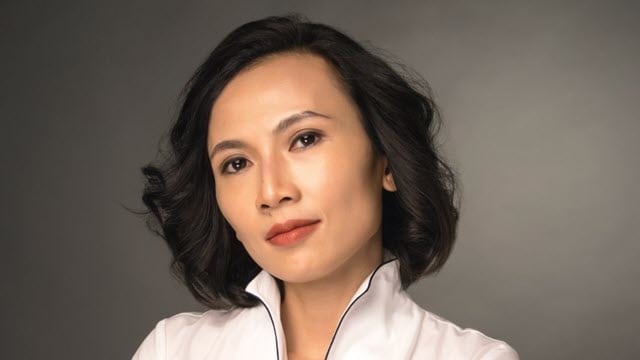

Pham Thi Thanh Thao finds success by putting people first at family’s Pham Nguyen Confectionery
Pham Thi Thanh Thao is COO of Pham Nguyen Confectionery, Vietnam’s leading manufacturer of soft cakes, biscuits, chocolates, and crackers. The company was founded in 1990 by Thao’s mother and has since become one of Southeast Asia’s leading snack food manufacturers. Today, the company employs more than 1,000 and distributes its tasty treats to more than 15 countries. We sat down with Thao to talk about the pride she feels in helping grow her family’s business, her values as a leader, and her advice for current and future women leaders.
Q: Your mother founded Pham Nguyen Confectionery in 1990 and your father joined in 2000. What was it like growing up around the business?
My mother started the business while she was pregnant with my sister and had children at home. I love telling her story because it shows you how strong she is. To be able to handle the business, the children, and the pregnancy at the same time, it’s truly impressive.
Our home was basically business headquarters. I would answer the phone and take orders, and I knew when the business was doing well or struggling. It was very fun to be part of a family that ran a business together, and it helped me better understand and connect with my parents.
Q: Can you tell us a bit about your history with the company? Where did you start? How did you prepare for your current roles?
I joined the company 11 years ago after returning from university in the U.S., where I studied chemistry. I love data. I love numbers. So, not surprisingly, I gravitated toward research and development.
From there, I rotated into a new department each year, where I was tasked with understanding everything I could about the business from the manager’s perspective, as well as the employee’s. But my favorite part was moving into sales and getting to meet the customer. To be able to see what your product can provide, to visit each individual shop is a very encouraging experience. It allowed me to see how our business was making a difference in people’s lives.
Q: You mentioned that you studied in the U.S. before returning to Vietnam to help run the family business. Did you always know you would be part of the company one day?
From the beginning, I always loved the business. I’m very proud of what my family has built. And watching my parents work hard to build this company, it made me want to do my part to help it continue to grow and prosper.
Q: What did you learn from your parents that you’ve incorporated into your own style of leadership? How do your styles differ?
The most important thing I learned from both of them, the thing I witnessed in how they ran the business, was that they really cared about people. They have always made it their mission to get to know people, to really try to make every employee feel like part of the family. For them, taking care of employees is a way of taking care of the business. And taking care of the business is a way of taking care of the family. So that’s something I’ve really taken to heart.
I was also fortunate to have a mother who is a founder of a business, which taught me that you can be a leader without losing any part of what makes you a woman. She’s still the most caring person that you’ll meet. She didn’t try to make herself less feminine to lead.
Q: Your website says that women represent 70 percent of your management team. Why is that important to you? How does that affect how your company operates?
It’s funny, because that’s just something that happened naturally. We didn’t have a quota or anything. For us, the most important thing is to hire the right person for the role. And because of our company values, and of our highly technical manufacturing business, that means we hire managers who can be both people-oriented and very good with details.
Q: Who do you envision taking over the business when you’re ready to retire? What are you doing to prepare and evaluate them as future leaders?
I would love for this company to continue to be a family business for a long time. My boys, ages 9 and 10, are already learning from our family conversation, because we see the company as part of our family life. We don’t bring the stress of it to the table yet, but we bring the excitement. We get their opinions on new products and we let them have a say.
But they’ll have to put in the same work as everyone else. They’ll have to demonstrate their competency and work through challenges. They’ll have to embody our values and prove that they’re ready. Period. And after that, if they succeed, they’ll be able to move on to a management role.
Q: What advice would you give to other aspiring women leaders?
Women are so strong and so capable. In my experience, they’re the most responsible, data-driven, technologically savvy people at our company. But the one thing that’s holding them back, that’s hindering their success, is that they don’t have enough confidence in themselves.
Women need to find their voices and to be willing to broadcast their successes. And also to have more confidence in their decisions. I’ve found that women often don’t see themselves as leaders even when they are leaders. They’re seen as too soft or sensitive. But I don’t see it that way. I think that’s a strength. And I think that if women can trust themselves to be leaders, they’ll become leaders.
Q: Deloitte started a campaign around International Women’s Day called #BetheButterfly, in which we encourage women leaders to think about ways that small changes could yield wider changes. What sorts of small actions can today’s women leaders take to help make lasting change for future generations of women leaders?
Share your story. Be willing to step into the spotlight, to say yes to the interview, to do the PR. Because you never know how many women could be inspired by your story.
And be willing to teach others. I think women leaders have so much they could share, so many lessons to pass on. Especially in the corporate world, which is still very much dominated by men. Women need to help each other succeed. I think that’s the most important thing.
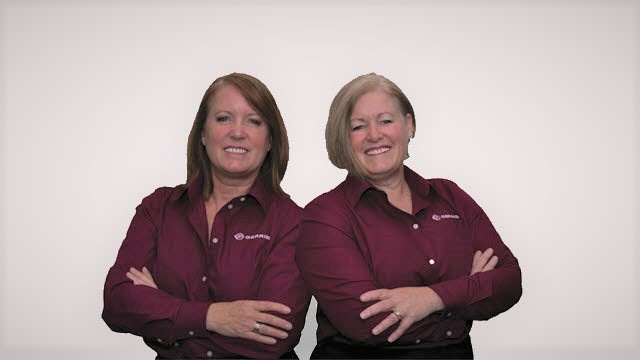

How Gerrie Electric CEOs Elaine and Heather Gerrie proved their mettle in a male-dominated industry
Elaine and Heather Gerrie are Co-CEOs and Co-presidents of Gerrie Electric, one of Canada’s largest independent electrical distributors and a third-generation family-owned business. Started in 1957 by their father, Ken, today Gerrie Electric employs more than 400 people and boasts more than $200 million in annual sales. We sat down with Elaine and Heather to discuss what it’s like to lead the company together and why we need to encourage more women to take leadership roles.
Q: Your father started Gerrie Electric in 1957. What was it like growing up around the business? What was he like as a leader?
Heather: When we were out of school for summer, our mother certainly didn’t want us hanging around at home, so she would send us out on the road with Dad to call on his customers. And that was where I found my desire to carry on his business. It gave us insight into what he did, and for him it was all about relationships. There were lots of companies his customers could be doing business with, but they went with him because he was so kind, determined, and had integrity. He made a point of talking to every single person in a room, to make everybody feel seen and equally treated. He earned his reputation as a very honorable man, and that’s something Elaine and I have really taken to heart in our own leadership.
Q: Your father said he always hoped that you two would take over the business. Did it feel like a path you were expected to take, or was it something that happened naturally?
Heather: I knew from a young age—maybe by the time I was 10 years old—that I wanted to work in the business. I loved what my father did. I loved watching him with his customers. I remember telling my grandparents that I wanted it to be called Gerrie & Daughter. And that was unheard of back then because there were absolutely no women in this business. So that was my plan, and Dad would have let me join the business right after high school, but my mother said, “No, no, you girls must get a good education first.”
Elaine: That’s right. Our mother went to university, which was not very common in her era. She was extremely bright and very driven. And she wanted to make sure that Heather and I were ready for the future and that we knew there wasn’t anything we couldn’t do, that there were no barriers for us, because that wasn’t the case for her. She really wanted to be a doctor, but my grandfather nixed that idea because girls didn’t do that sort of thing back then. And so she really wanted us to be able to follow our passions, whatever they were.
Q: You each joined the company at different times, but what did your career paths look like? Where did you start?
Heather: Dad wanted us to find our own paths. So for me, I found my path in outside sales because that’s what I watched Dad do and what I loved. After that I transitioned into corporate sales, in which I called on a specific account to develop and grow it into Gerrie’s largest account at the time. And I always had a real affinity for human resources, for interviewing and hiring right. So we did a lot of different roles within the company, and that really helped us identify our interests and let us find our own place rather than being told what to do.
Elaine: We grew up in the business really doing anything that needed to be done. But when I left university, I went into our newly formed automation group, which was very transformational back in 1980. After six years in that very technical division, I decided I needed to understand the electrical side of the business a bit more, so I moved into corporate quotations and later into operations.
Q: How did your joint approach to leadership take shape?
Elaine: The wonderful thing about Heather and me is that we’re completely different in terms of personalities and interests. Heather is great at the people side and very strong in vendor relations, whereas my strengths are in operations and with the customers. So we work really beautifully together because we have distinct roles and passions, and we can leverage each other as needed. We’re very lucky to have each other.
Q: You both joined the executive leadership team in 1988. Did you experience any challenges with the management team accepting you?
Heather: One of the executives actually said, “I’ll never work for Heather.” But he ended up working alongside Elaine and me for years! He didn’t have issues with us, it was just that the idea of women—especially young women—in leadership positions was unheard of. But Dad was very strong-minded and didn’t see any reason why Elaine and I couldn’t become leaders. He saw how our mom was held back, and he wasn’t going to hold his daughters back. So that gave us a leg up. I also think, because our dad was so respected, we probably were treated more fairly than some other women in the industry.
Elaine: Also, because we grew up in the business, and we deeply understood the business, it didn’t take long before people realized we weren’t just catapulted into leadership. We earned our positions. People may have come in with a bias, but once we started engaging with them and demonstrating our knowledge, that all faded away.
Q: What advice would you give to women who want to pursue leadership roles, whether in a family business or elsewhere?
Heather: It’s so important to build a network of diverse people who can offer support at different times and in a variety of different ways. Elaine and I were very fortunate to join our industry association early on, and those mentors brought us into the fold and helped us understand a broader scope of the business—not just Gerrie Electric, but the entire trajectory of electrification and power, of what was possible.
Elaine: I’d also add that, especially in our industry, women are still excluded from a lot. So having a network that can bring you into things you might otherwise be excluded from, that’s a huge advantage.
Q: Deloitte started a campaign around International Women’s Day called #BetheButterfly, in which we encourage women leaders to think about ways that small changes could yield wider changes. What sorts of small actions can today’s women leaders take to help make lasting change for future generations of women leaders?
Heather: We need to encourage women to take new and bigger roles. Especially after the pandemic, when so many women were forced to step down or reduce their workloads to keep the home running. It was a setback for so many of them. As leaders, we need to be watching for women who have the potential to succeed and to approach them with new opportunities.
Elaine: For me, something as simple as making introductions at an event or function can be so helpful, too. Especially in our male-dominated industry, it’s very hard for a woman to just walk up to a group of men and introduce herself or join the conversation. So being willing to take another woman under your wing and help bridge those relationships, that’s something all of us need to do.

